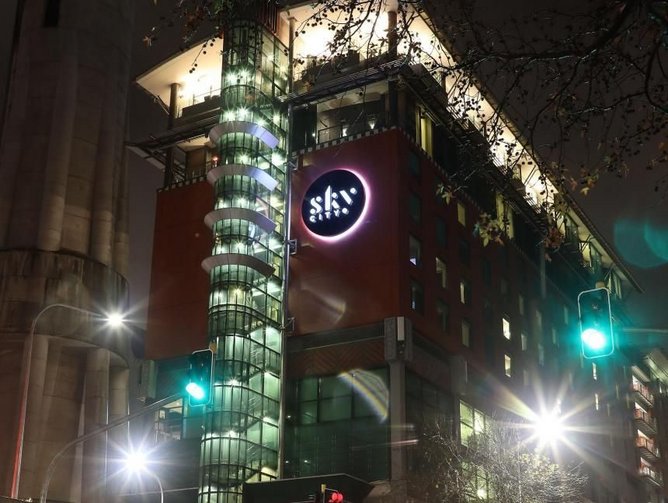SkyCity Entertainment Group: customer digital transformation
SkyCity Entertainment Group is one of Australasia’s leading gaming and entertainment businesses, currently operating five casinos, two hotels, and a host of bars and restaurants across four locations in New Zealand and Australia. Its leadership has seen a shift in the past few years, with a new and dynamic executive team. CIO Glen McLatchie joined in 2016, and CEO Graeme Stephens took the helm in 2017, while COO Michael Ahearn and CMO Liza McNally joined in Dec 17 and Jan 18 respectively – all bring new and innovative ideas to the digital future of the business. The company’s digital transformation coincides with three new projects: the New Zealand International Convention Centre (NZICC) in Auckland, plus two luxury hotels in Auckland and Adelaide.
McLatchie’s responsibility as CIO is, in short, to “lift the digital capability of the organisation to be able to respond to future innovation initiatives and growth strategies”. This has meant a complete overhaul of SkyCity’s systems, from upgrading the aged technology infrastructure, to renewing the core transactional systems all the way out to point of sale and web and mobile interactions with customers.
“The casino industry is not what I would describe as ‘tech-savvy’ in terms of transactional systems and digital customer interactions,” McLatchie explains. “There is some really smart technology in the gaming sector, but when it comes to digital interactions with customers it’s been lagging.”
When McLatchie joined SkyCity in 2016, there was little infrastructure in place to deal with digital growth. “In two years, we have done a phenomenal amount of work, progressing from a handful of heroes holding the whole thing together to scalable tech that creates a digitised platform for the future” he praises. It is this new improved technology that will make the company’s latest projects stand out. The NZICC and two luxury hotels represent NZ$1bn worth of capital works, and will boast technologies such as keyless room entry, in-room tablets allowing control from one central point, broadcast quality networks for conferences, and advanced audio-visual systems for the best possible service.
Partnerships with companies such as HP, Microsoft, Palo Alto and Cisco have been key to improving technology in SkyCity’s casinos and hotels, but McLatchie emphasises how a lot of the work has been carried out in-house through a dedicated team of IT specialists. “We have replaced or upgraded just about every single key application across the group,” he explains, including an overhaul of the supply chain and financial system with Microsoft, and a redevelopment of point-of-sale systems through new partner, TASK Technologies.
McLatchie knows that SkyCity’s point-of-sale is “the main area where customers connect directly with us, so it’s really important that we get it right”. Using TASK’s state of the art POS interface, SkyCity can learn more about its customer base, providing them with a better service. With everything from menu flows that allow staff to cross sell or suggest substitution, to promotional screens and ease of reward redemption, through to cleaner and more accurate reporting, thereby automating old manual processes. Customer habits, mobile terminals, and payment flexibility are all accessible through professional and versatile interfaces, and the partnership has been crucial to enhancing the way SkyCity now interacts with its customers.
Yet how does a company as established as SkyCity strike the balance between the legacy of its foundations and a thriving digital transformation? A change in company culture is “absolutely critical,” McLatchie elucidates. “We have people in the organisation who have been doing things the same way for many years, so we have had to go through a cultural change to get people to understand that technology is actually an enabler.”
McLatchie found that the best way to start was by describing “what good looks like,” providing a frame of reference through other successful companies and sectors, and make sure strategies are “well-articulated and well-understood from the board down.” Equally important is an effective change management programme, to which SkyCity has assigned a whole team. “Every single project has a training component, a testing component, an operational change component, a benefits realisation component and as importantly a communication component tied to the overall transformation – all to make sure it lands really well.
“Effective change management is critical. Getting the operating model right, ahead of implementing the technology, is key. When it’s not done well or is completely missed, projects fail to get the take-up they need to drive benefits. It’s vital in a change programme that is as full as ours.”
According to McLatchie, the coming year is the ‘year of data management and analytics and customer experience management’, which he says will deliver the real benefits behind the digital transformation. “We have worked very closely with Deloitte and Accenture respectively to ensure that we start with an operating model design before we even embark on technology choices for these critical areas of the transformation. For example, we have a great team of people from Deloitte working with us to design the operating model for data management and analytics, including a COE structure for data management to implementing an Azure platform. These partnerships become critical to the success of what we are doing.”
Digital transformation is evidently of paramount importance to SkyCity’s growth with McLatchie as CIO. It is, however, integral to strike a balance between digital transformation and sustainability, a feat the company has accomplished with no compromise on either part. “Our approach to being a responsible citizen is quite detailed, in terms of our corporate and social responsibility. Being a responsible host is really important to us; we do a lot of work around ensuring our players are looked after, including using facial recognition technology and mobile location tracking.”
SkyCity is also dedicated to environmental sustainability, pledging to be carbon neutral by 2020, with the entire leadership team already so. It insists on ethical sourcing, low emissions, reducing waste and minimising environmental impact, as “if we don’t start doing it as corporations, nothing will change”. Putting money back into the communities in which it operates is also essential for the company, with an investment total of more than NZ$4 million across four NZ SkyCity trusts, and over NZ$1.6 million in sponsorships.
The ambition of McLatchie and his team at SkyCity is evident, and their legacy will be that great digital transformation does not need to come at the expense of the heritage of a company’s establishment, or have a big environmental impact. McLatchie praises the dedicated team that has driven the company’s aspirations: “New Zealand is a small market, and everyone is trying to go through a digital transformation, so I’m incredibly proud of the team we’ve got here.” As the company embarks on its latest ventures, it is this pride in driving forward technology in the entertainment industry while being socially and environmentally sustainable that will ensure the continuation of its success.






